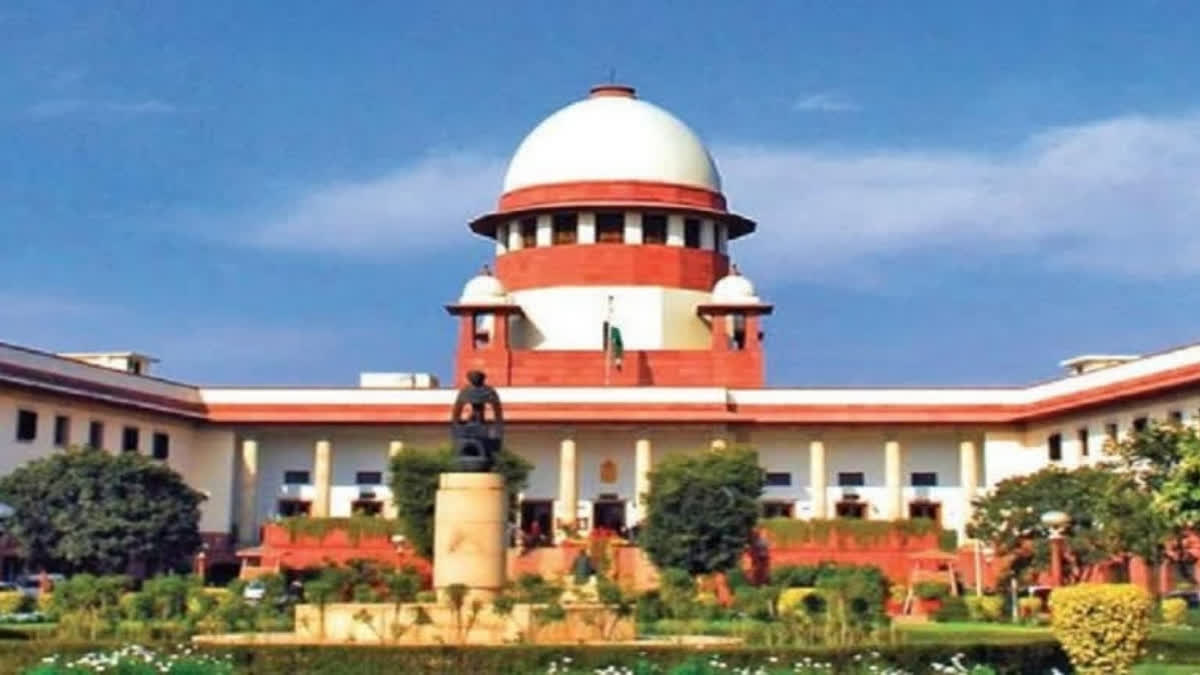New Delhi: The Supreme Court has declared that the fundamental right to health encompasses consumers' right to be made aware of the quality of products offered for sale by manufacturers, service providers, advertisers and advertising agencies. A bench comprising justices Hima Kohli and Ahsanuddin Amanullah said there is the absence of any robust mechanism enacted in law to ensure that the obligations cast on the advertiser to adhere to stipulations in the Guidelines for Prevention of Misleading Advertisements and Endorsements of Misleading Advertisements, 2022, in letter and spirit.
“It is deemed appropriate to invoke the powers vested in this court under Article 32 of the Constitution for the enforcement of the fundamental right to health that encompasses the right of a consumer to be made aware of the quality of products being offered for sale by manufacturers, service providers, advertisers and advertising agencies”, said the bench, in its May 7 order, which was uploaded on May 16 on the apex court’s website. The apex court passed this order on a plea filed by the Indian Medical Association alleging a smear campaign by Patanjali and yoga guru Ramdev against the Covid vaccination drive and modern systems of medicine.
“To fill up this vacuum, it is directed that henceforth, before an advertisement is printed/aired/displayed, a self-declaration shall be submitted by the advertiser/advertising agency on the lines contemplated in Rule 7 of the Cable Television Networks Rules, 1994”, said the bench.
“The self-declaration shall be uploaded by the advertiser/advertising agency on the Broadcast Sewa Portal run under the aegis of the Ministry of Information and Broadcasting. As for the advertisements in the Press/Print Media/Internet, the Ministry is directed to create a dedicated portal within four weeks from today”, said the bench.
The bench said immediately after the portal is activated, the advertisers shall upload a self-declaration before any advertisement is issued in the press/print media/internet. “Proof of uploading the self-declaration shall be made available by the advertisers to the concerned broadcaster/printer/publisher/TV. Channel/electronic media, as the case may be, for the records”, said the bench.
“No advertisements shall be permitted to be run on the relevant channels and/or in the print media/internet without uploading the self-declaration as directed above. The above directions shall be treated as the law declared by this Court under Article 141 of the Constitution of India”, said the bench.
The apex court said it is of firm view that advertisers/advertising agencies and endorsers are equally responsible for issuing false and misleading advertisements. The bench said that such endorsements that are routinely made by public figures, influencers and celebrities go a long way in promoting a product.
The bench said the advertisers must act with a sense of responsibility when endorsing any product and take responsibility for the same, as reflected in guideline No.8 of the guidelines, 2022, which relates to advertisements that address/target or use children for various purposes. “And Guideline No.12 that lays down the duties of manufacturers, service providers, advertisers and advertising agencies to ensure that the trust of the consumer is not abused or exploited due to sheer lack of knowledge or inexperience”, said the bench.
The bench observed that a status report of the action taken by the central authority on false and misleading advertisements, including food and health products, shows that from July 2020 to April 2024, the total number of notices issued by the central authority for misleading advertisements was 163.
“Out of the said 163 notices, 58 were closed and the remaining 105 are stated to be under process. Not much light has been thrown on the nature of action taken and the activities of the authority, which is empowered to take even suo moto action whenever false/misleading advertisements are noticed”, said the bench.
It directed the Ministry of Consumer Affairs to file an additional affidavit setting out the action taken by the central authority on noticing/being informed of false/misleading advertisements, particularly in the food and health sector. The bench said that the summary of the action taken against broadcasters for violation of the Advertisement Code since 2018 points to a dismal picture and action has been taken against the broadcasters for the violation of the Advertisement Code in only 60 cases.
“There are only three instances of action taken in respect of misleading advertisements aired on FM Radio. The Press Council of India is stated to have received 77 complaints relating to misleading advertisements since the year 2018. Out of those 77 cases, 39 have been closed being defective, 15 have been closed on an undertaking from the respondents stating that they will not publish such advertisements in the future and 17 cases are ongoing”, said the bench.
On May 7, the Supreme Court said that celebrities and public figures must act responsibly while endorsing a consumer product and asked the Union Ministries concerned to bring on record misleading advertisements and the action taken or proposed to be taken against them by the Central Consumer Protection Authority (CCPA). The apex court has scheduled the matter for further hearing on July 9.



